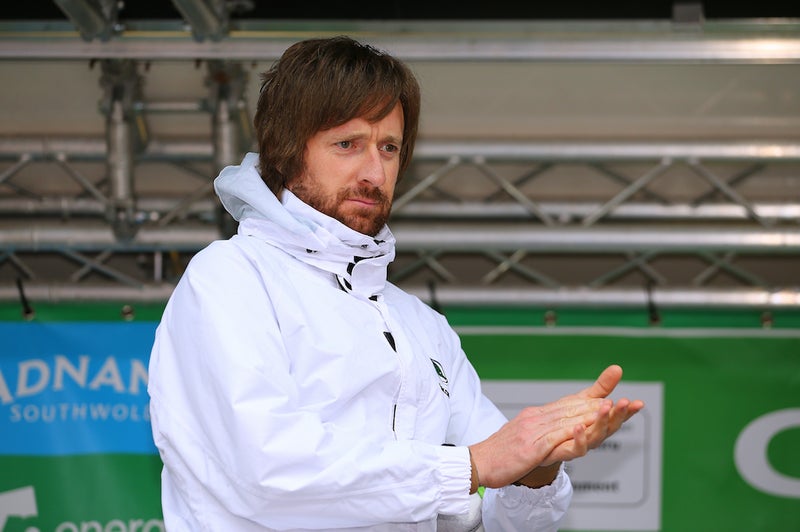Throwback Thursday: Bradley Wiggins and his historic yellow jersey
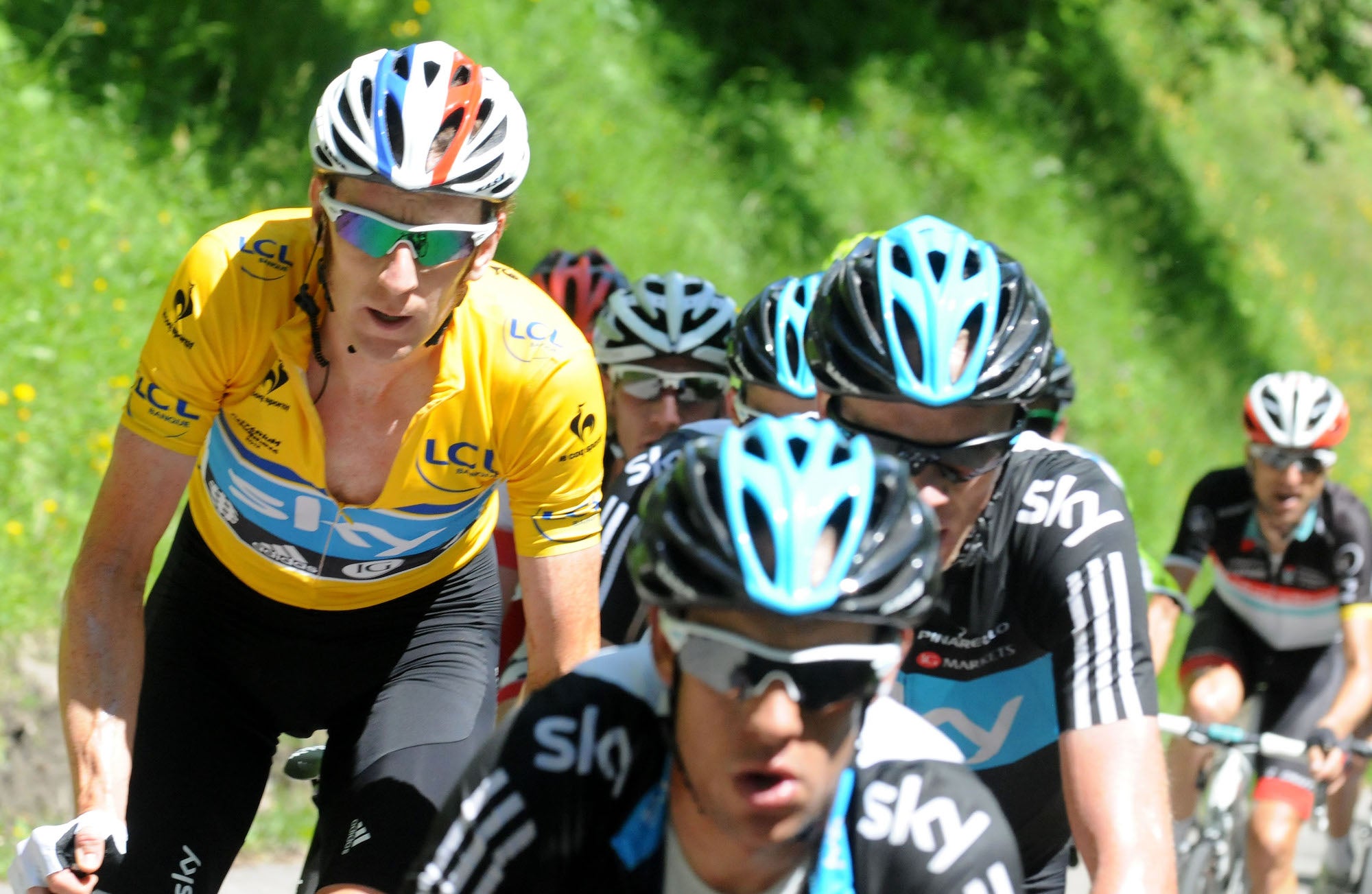
Bradley Wiggins, shown here in the 2012 Critérium du Dauphiné, became the UK's first Tour de France winner. (Photo: James Startt/VeloNews)
It is sometimes easy to overlook the contribution Bradley Wiggins made to the sport.
He might have won “only” one Tour de France, but he was nothing short of a transformative figure and led a whole generation of British cyclists to new heights.
Throughout his meteoric rise on the boards and on the pavement, he maintained a sense of style and extravagance that was utterly iconoclast in the sport.
VeloNews editors Andrew Hood and James Startt have been covering European cycling since the 1990s. And for this week’s “Throwback Thursday,” they reflect on Wiggo, the champion, and his sometimes controversial legacy.
When did you realize that Bradley Wiggins was something special?
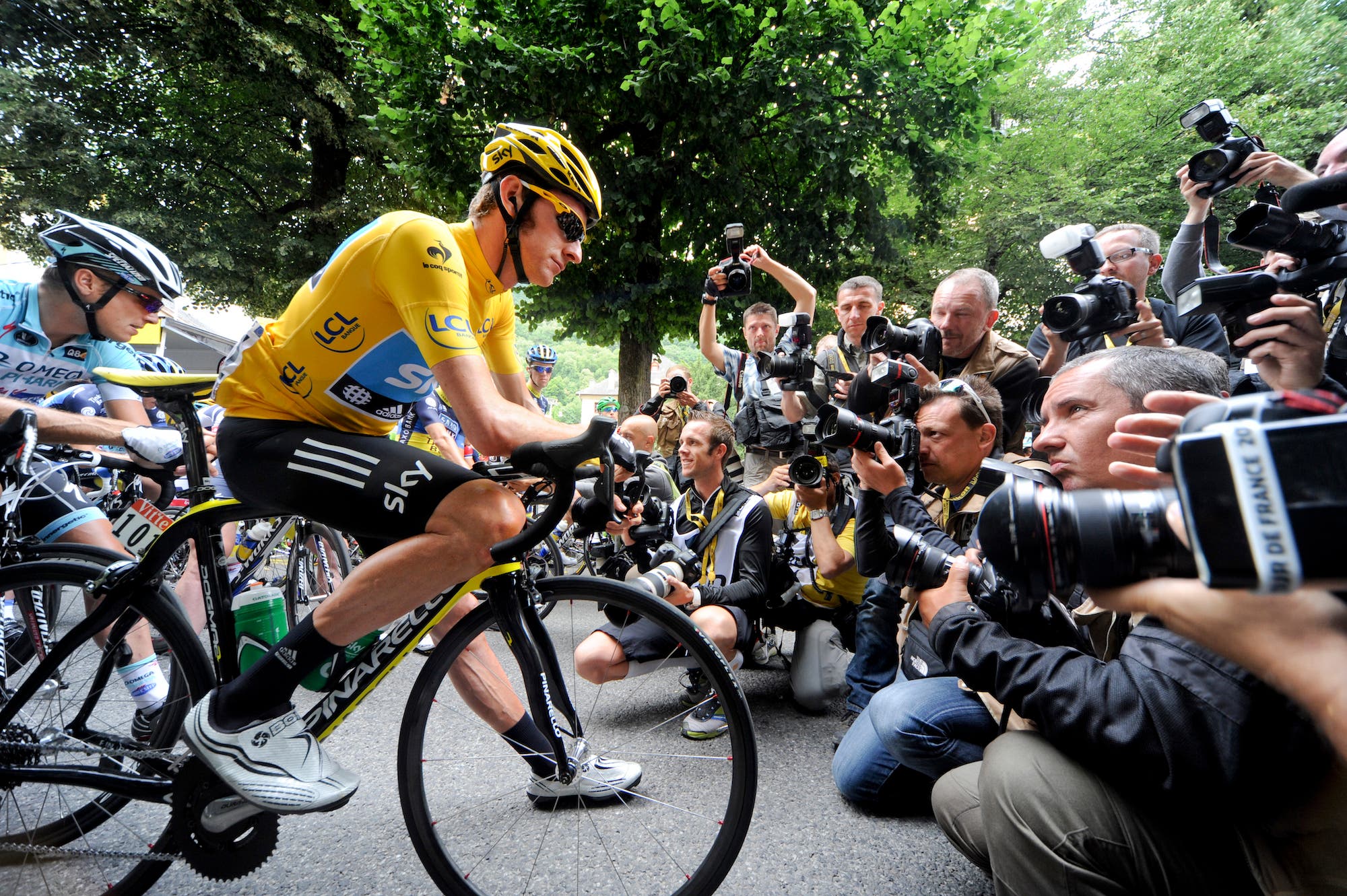
James Startt: Well, Wiggins was always a special rider but for so much of his early career he was really focused on the track. He was on just about every French team it seems from FDJ to Cofidis to Credit Agricole, but they just didn’t appear to know what to do with him. It wasn’t until 2009 when he did that year with Garmin – Slipstream that we really started seeing another kind of rider. All of a sudden he became a much more complete rider, capable not only of time trialing but climbing. Already in the Giro d’Italia, he was climbing consistently at the front in the first half of the race. And then he finished third in the Tour. Obviously, he had lost weight and had a better power-to-weight ratio, but suddenly he was a Tour contender.
Andrew Hood: Back in 2007, a young Wiggins was venturing onto the road and showing his first hints of promise.
In that year’s Tour, he was bitterly disappointed to finish fourth in the opening prologue in London. He took his revenge with a monster solo breakaway in a sprinter’s stage at the end of the first week. Wiggo was summarily reeled in and caught, but the breakaway attempt put him into the spotlight. And that day just so happened to be the 40th anniversary of Tom Simpson’s tragic death on Mont Ventoux.
Always a fan of cycling’s history, Wiggo denied he was tipping his hat to Simpson that day, but it revealed his strength of character that would soon lead him to make history less than a half-decade later.
What was your standout moment with Wiggins?
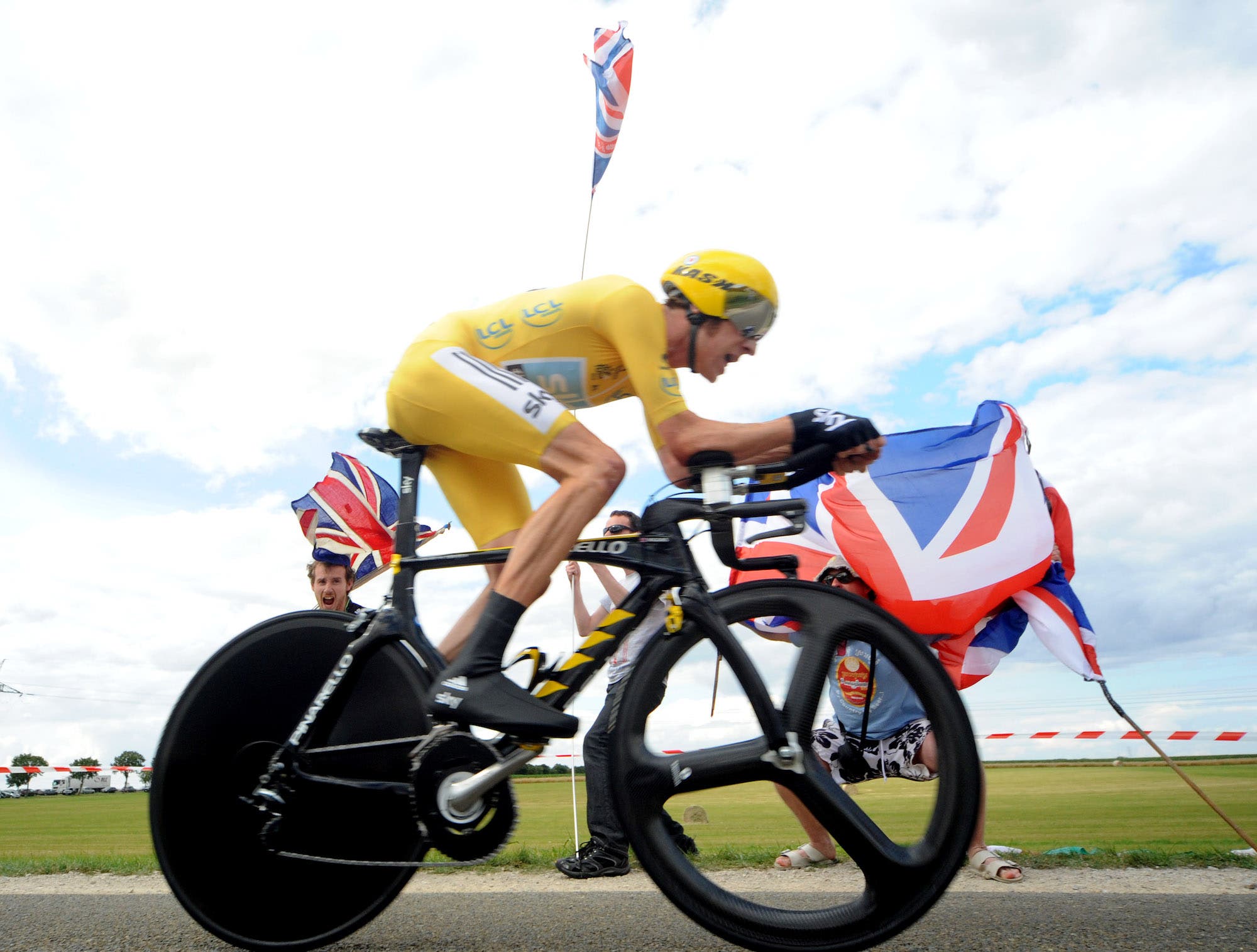
Hood: Wiggins had a love-hate relationship with the media, and we did too with him. No one was a better quote than Wiggins, but he could be quite rude when he wasn’t in the mood to talk.
At one year at the worlds, we asked to speak to Wiggins. Me and another journalist waited 45 minutes to speak with him. When he finally approached us, he gave a handful of short two or three-word answers, before replying, “that is a stupid question, why else would I be there?” and walked away.
My question? Are you going to win tomorrow? Of course, he did, winning the rainbow jersey in the time trial.
Startt: Well, I would say that stellar 2012 season. I mean he won Paris-Nice, the Criterium du Dauphiné, the Tour de France, and then the Olympic gold medal in the TT. It doesn’t get much better than that but it didn’t last.
I remember talking with my friend Jacky Durand, a French TV commentator, who was teammates with Wiggins when he was first starting out with the FDJ team. He really liked Bradley but didn’t think he would be able to continue riding at that 2012 level for long.
Jacky is one of the most insightful people I know in the sport and he had seen a lot of track riders transition to the road. They often brought this intense focus and concentration from the track, but often had trouble maintaining it on the road, which is such a different beast with the longer distances and constant unknowns.
He just felt like Wiggins was making a huge effort in 2012 to maintain his weight and stay focused on some of the biggest objectives in the sport, but he was skeptical that Wiggins would be able to stay at that level for long. And he didn’t. But boy, what a season he had.
Do you have any personal story or anecdote from an interaction with Wiggins?
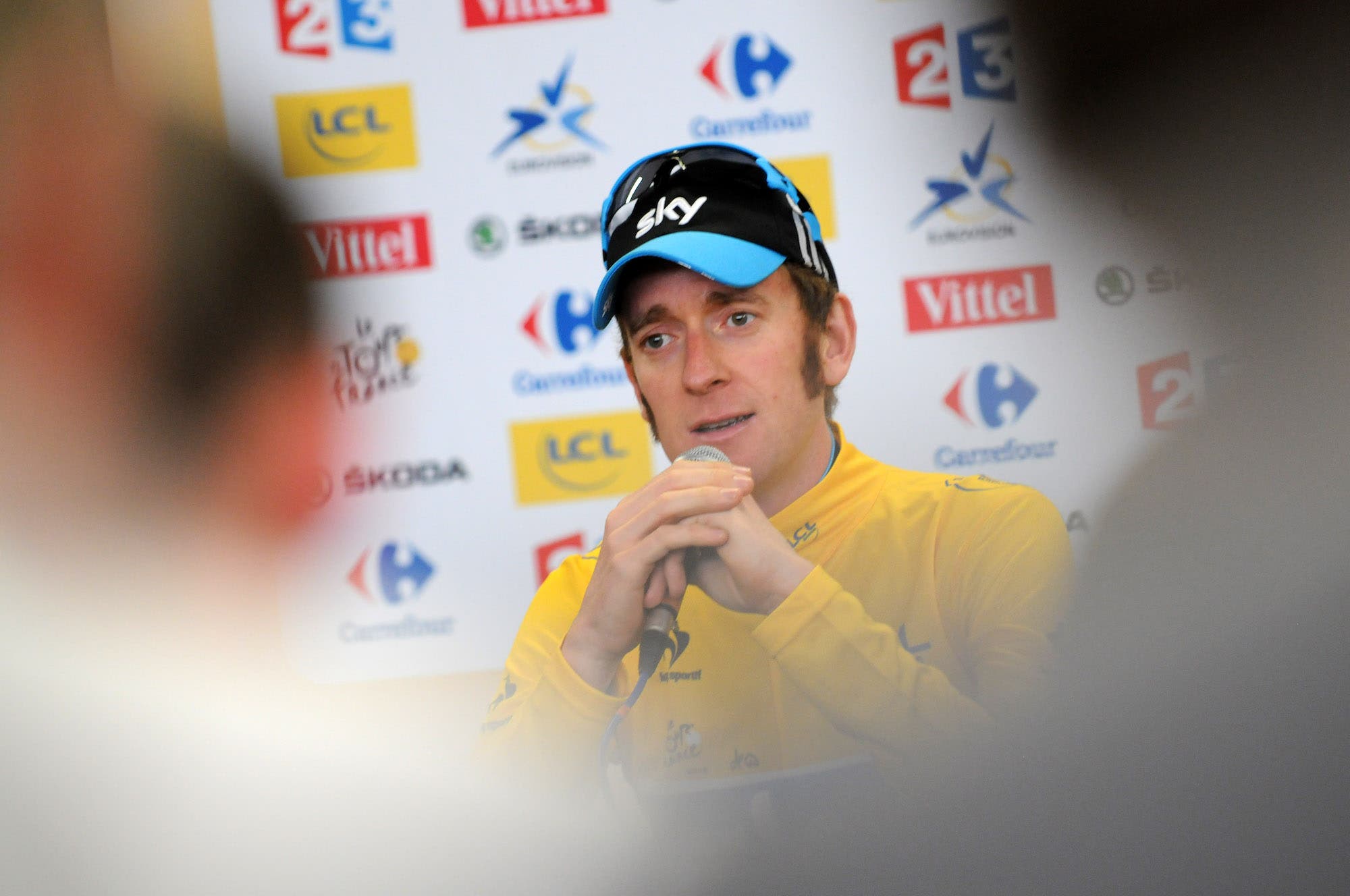
Startt: You know I never got to know Bradley as a cyclist. I didn’t follow him closely while he was focused on the track and I underestimated his full potential on the road.
By the time he hit the peak of his career, he was leading Team Sky and they always kept the press at a distance. And this fit Wiggins, who by that point had developed a certain rockstar stature in the sport, along with a certain disdain for the press, which was fit for a British rocker.
But I enjoyed observing him from a distance and his story is unique.
First, there was his complicated relationship with his father. Bradley acquired his love for the track from his dad, who was a real specialist, but their relationship was not always easy. Then there was the Wiggo, the Mod rocker. He could be quite entertaining.
Then there is the Wiggins of today who will do commentary in the Tour de France from the back of a moto with his unmistakable Union Jack jacket on. One thing is for sure … there will only be one Bradley Wiggins in cycling. But perhaps most importantly, Wiggins was distinctly British and took British cycling to unprecedented heights.
Hood: As James said, Wiggins never had much time for media when he wasn’t in the mood to talk, and fair enough. By the time he was at Sky, he was the UK’s first legitimate Tour de France contender in a generation. The pressure was immense.
One of Wiggins’ greatest quotes came indirectly from a question that I wanted to ask him during his rise during the 2012 Tour.
Wiggins was available for a few questions after each stage in a press conference with the yellow jersey, and that day I needed to ask him a specific question for a story I was working on. A colleague from The Associated Press asked me if I had any suggestions for a question to ask Wiggins.
Wiggins’ rise came in the aftermath of the EPO Era and all the scandals involving the now-disgraced Lance Armstrong, and I suggested this one: “What do you say to all the doubters on Twitter who say if you’re leading the Tour de France you have to be doping?”
Kudos to my colleague for asking it, and Wiggins gave one of the greatest answers in a press conference ever:
“I say they’re just fucking wankers. I cannot be doing with people like that.
“It justifies their own bone-idleness because they can’t ever imagine applying themselves to do anything in their lives.
“It’s easy for them to sit under a pseudonym on Twitter and write that sort of shit, rather than get off their arses in their own lives and apply themselves and work hard at something and achieve something. And that’s ultimately it. C*nts.”
Did those c*nts have their last laugh? Questions about Wiggins’ legacy and Team Sky continue to rattle today.
